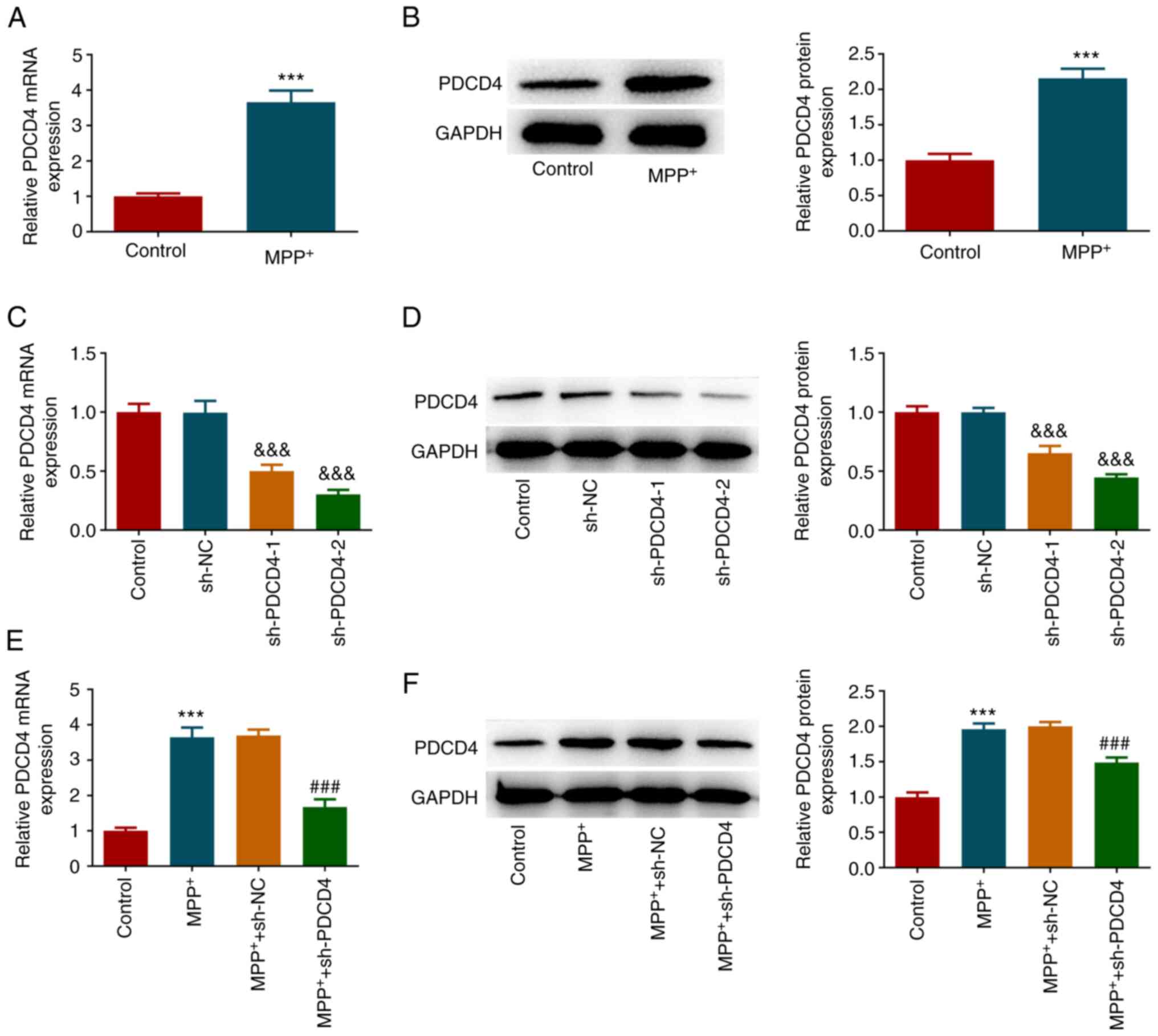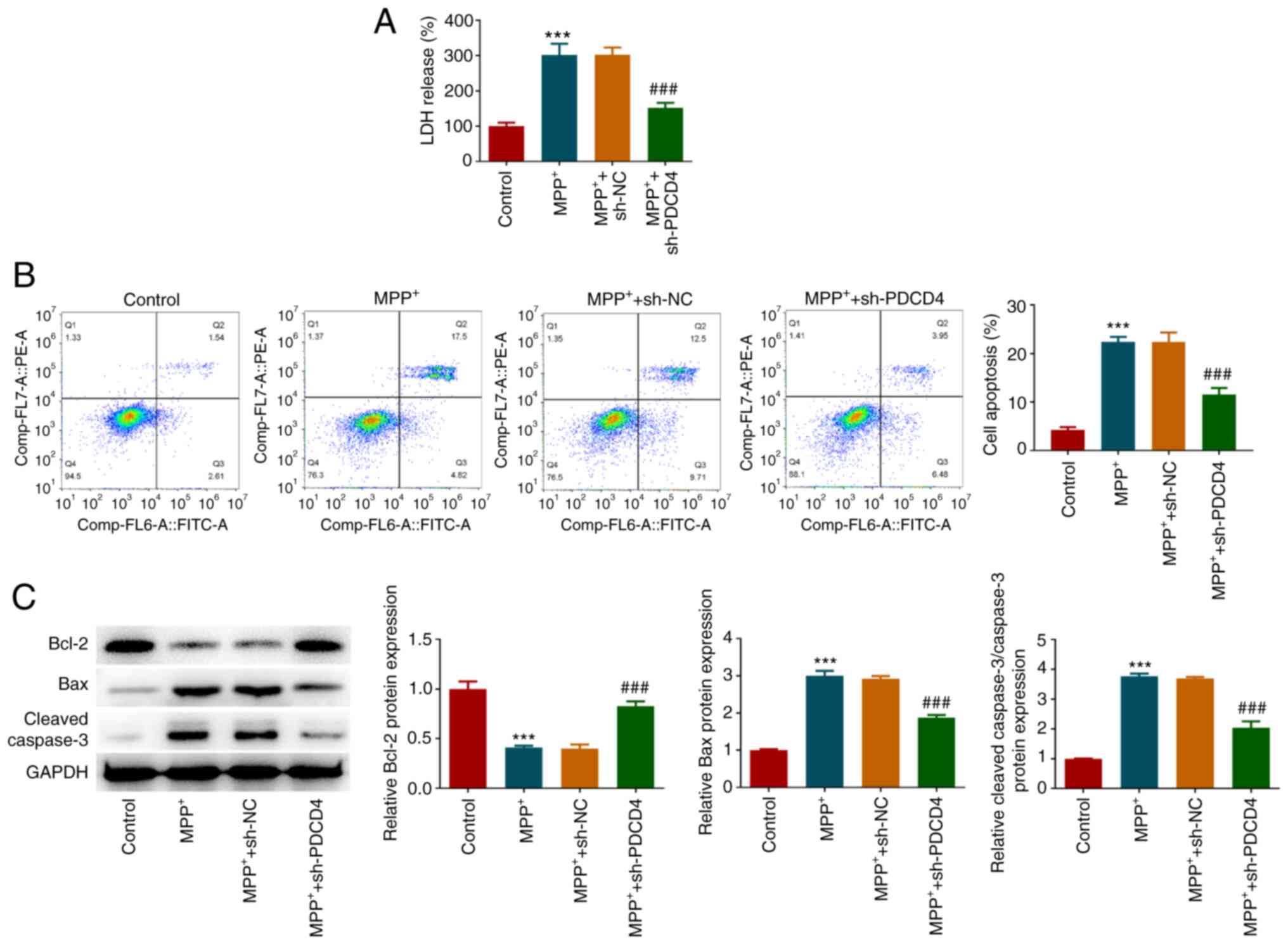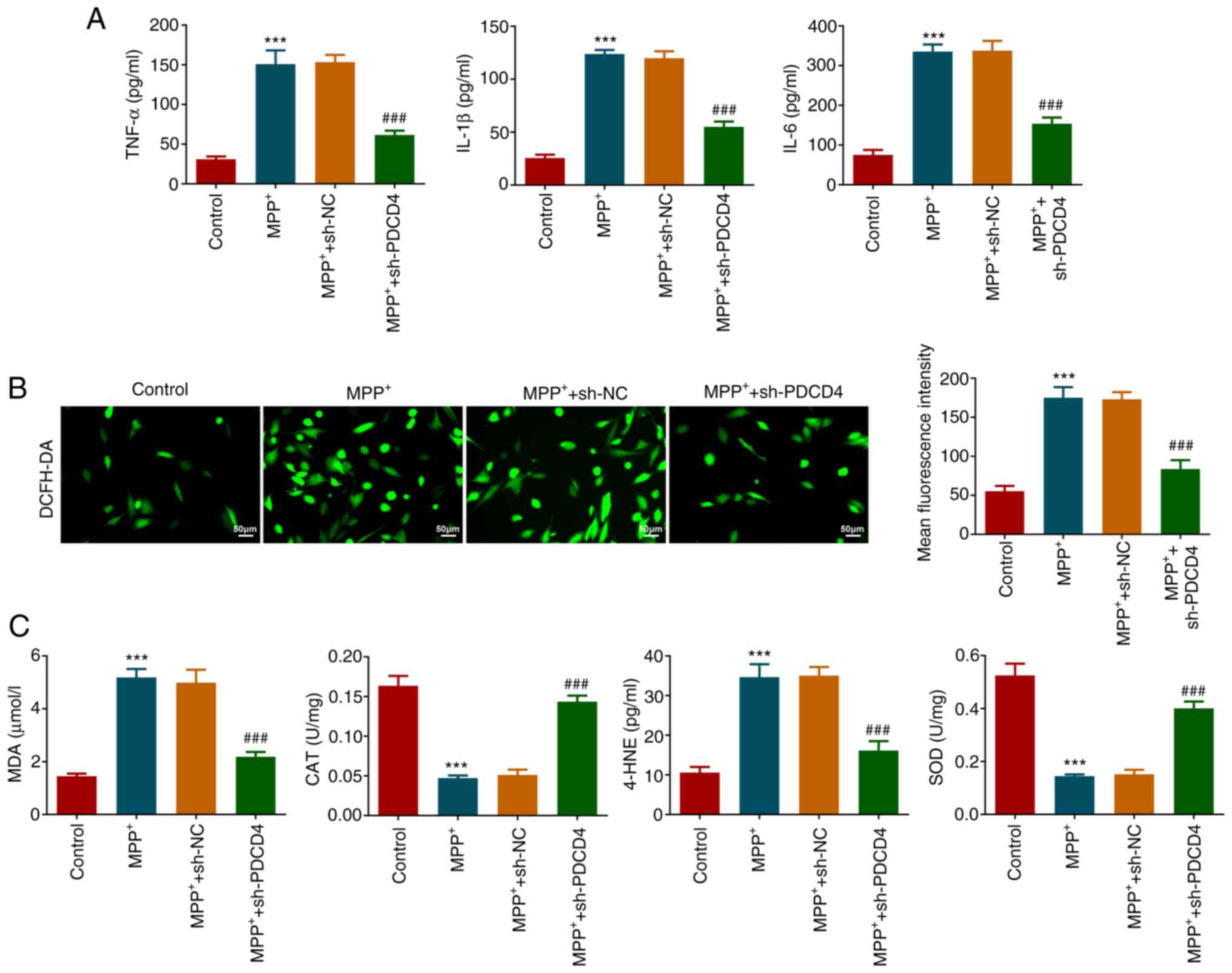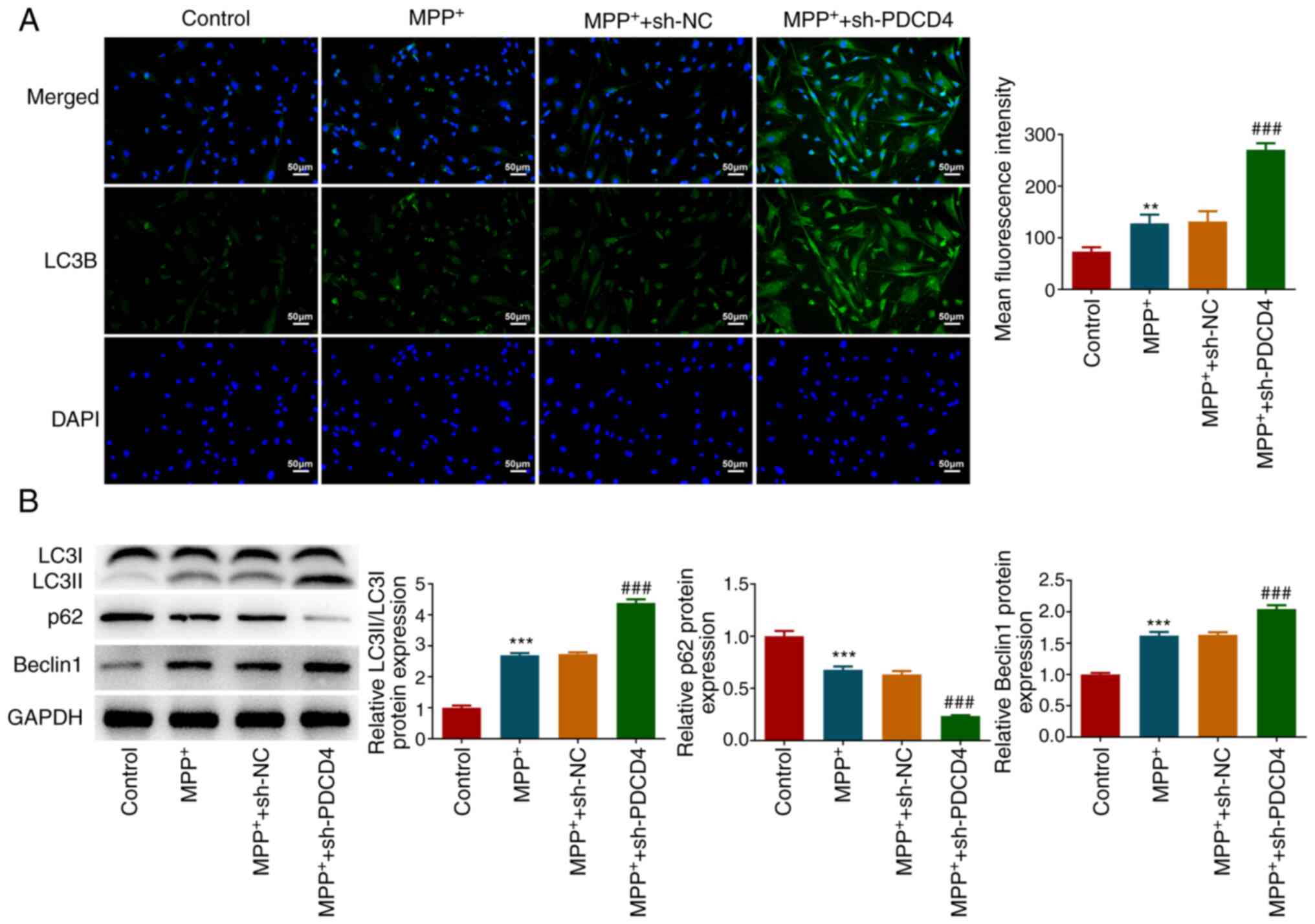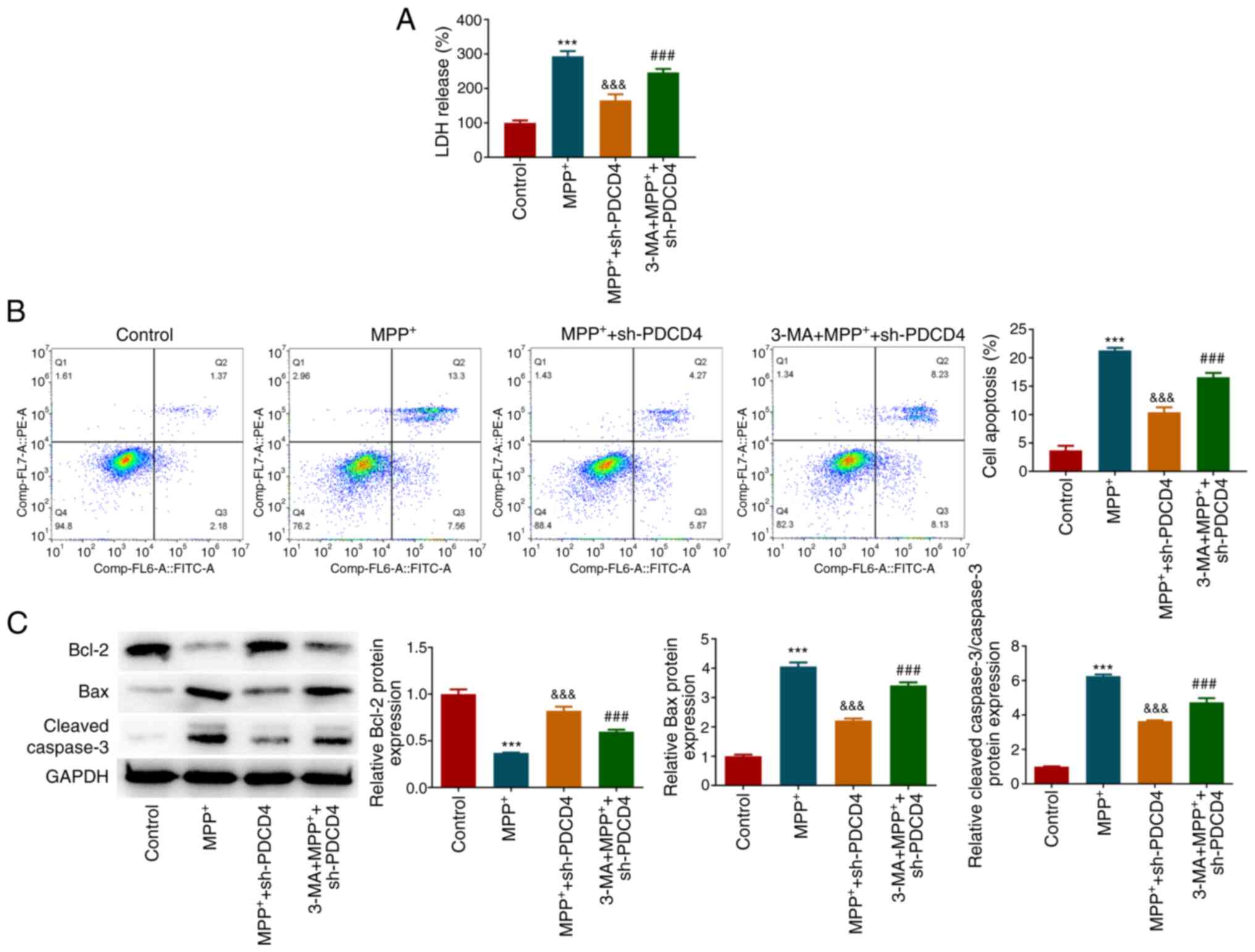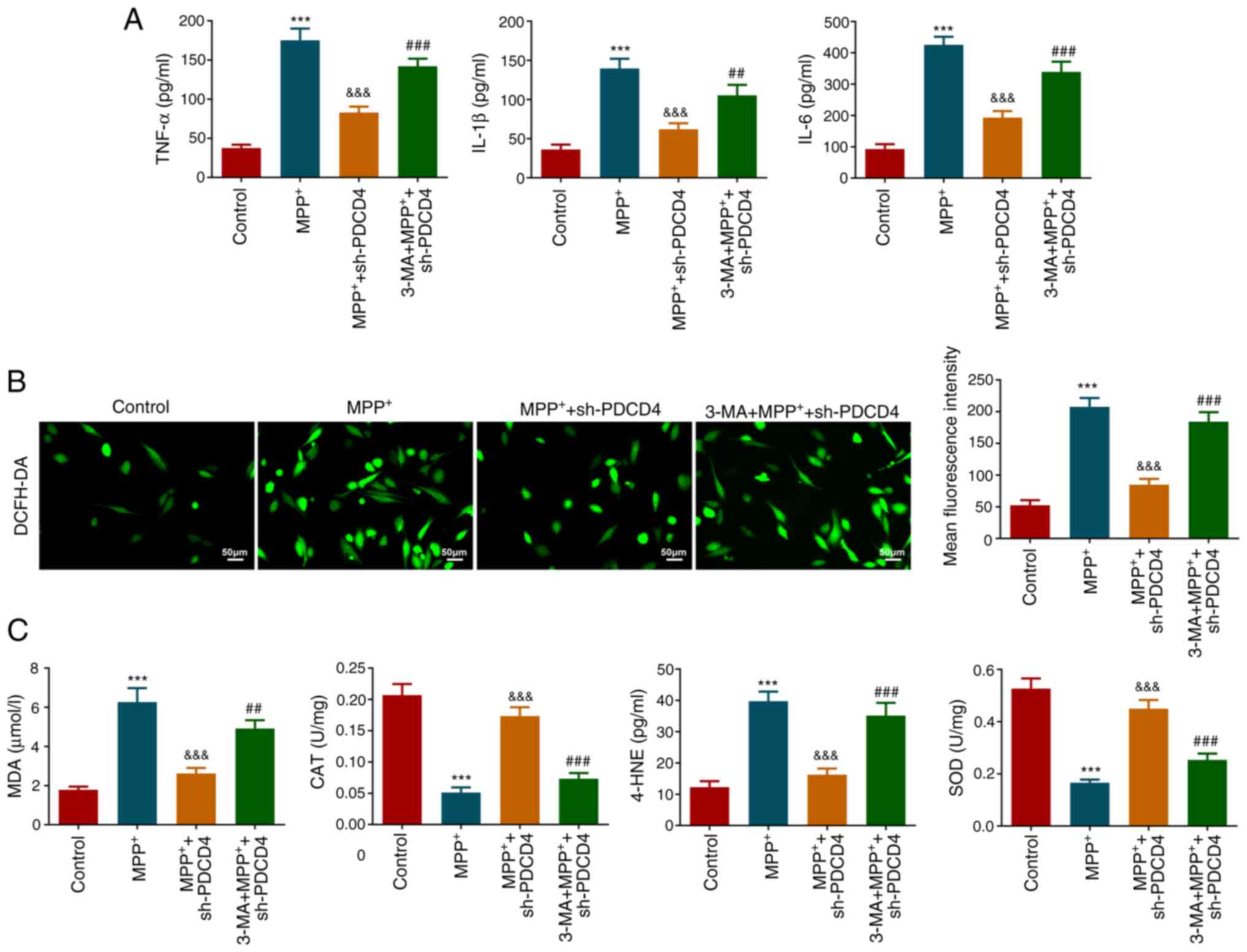|
1
|
Hou Y, Dan X, Babbar M, Wei Y, Hasselbalch
SG, Croteau DL and Bohr VA: Ageing as a risk factor for
neurodegenerative disease. Nat Rev Neurol. 15:565–581.
2019.PubMed/NCBI View Article : Google Scholar
|
|
2
|
Amuthavalli Thiyagarajan J, Mikton C,
Harwood RH, Gichu M, Gaigbe-Togbe V, Jhamba T, Pokorna D, Stoevska
V, Hada R, Steffan GS, et al: The UN Decade of healthy ageing:
Strengthening measurement for monitoring health and wellbeing of
older people. Age Ageing. 51(afac147)2022.PubMed/NCBI View Article : Google Scholar
|
|
3
|
Hou X, Watzlawik JO, Fiesel FC and
Springer W: Autophagy in Parkinson's disease. J Mol Biol.
432:2651–2672. 2020.PubMed/NCBI View Article : Google Scholar
|
|
4
|
Li C, Wang X, Li X, Qiu K, Jiao F, Liu Y,
Kong Q, Liu Y and Wu Y: Proteasome inhibition activates
autophagy-lysosome pathway associated with TFEB dephosphorylation
and nuclear translocation. Front Cell Dev Biol.
7(170)2019.PubMed/NCBI View Article : Google Scholar
|
|
5
|
Park H, Kang JH and Lee S: Autophagy in
neurodegenerative diseases: A hunter for aggregates. Int J Mol Sci.
21(3369)2020.PubMed/NCBI View Article : Google Scholar
|
|
6
|
Martini-Stoica H, Xu Y, Ballabio A and
Zheng H: The autophagy-lysosomal pathway in neurodegeneration: A
TFEB perspective. Trends Neurosci. 39:221–234. 2016.PubMed/NCBI View Article : Google Scholar
|
|
7
|
Wang Q and Yang HS: The role of Pdcd4 in
tumour suppression and protein translation. Biol Cell:
10.1111/boc.201800014, 2018 (Epub ahead of print).
|
|
8
|
Moustafa-Kamal M, Kucharski TJ, El-Assaad
W, Abbas YM, Gandin V, Nagar B, Pelletier J, Topisirovic I and
Teodoro JG: The mTORC1/S6K/PDCD4/eIF4A axis determines outcome of
mitotic arrest. Cell Rep. 33(108230)2020.PubMed/NCBI View Article : Google Scholar
|
|
9
|
Dorrello NV, Peschiaroli A, Guardavaccaro
D, Colburn NH, Sherman NE and Pagano M: S6K1- and betaTRCP-mediated
degradation of PDCD4 promotes protein translation and cell growth.
Science. 314:467–471. 2006.PubMed/NCBI View Article : Google Scholar
|
|
10
|
Chai L, Wang Q, Wang Y, Li D, Zhang Q,
Chen Y, Liu J, Chen H, Qiu Y, Shen N, et al: Downregulation of
PDCD4 through STAT3/ATF6/autophagy mediates MIF-induced PASMCs
proliferation/migration and vascular remodeling. Eur J Pharmacol.
956(175968)2023.PubMed/NCBI View Article : Google Scholar
|
|
11
|
Du X, Osoro EK, Chen Q, Yan X, Gao D, Wu
L, Ren J, Feng L, Wu N, Lu K, et al: Pdcd4 promotes lipid
deposition by attenuating PPARα-mediated fatty acid oxidation in
hepatocytes. Mol Cell Endocrinol. 545(111562)2022.PubMed/NCBI View Article : Google Scholar
|
|
12
|
Li J, Kim SG and Blenis J: Rapamycin: One
drug, many effects. Cell Metab. 19:373–379. 2014.PubMed/NCBI View Article : Google Scholar
|
|
13
|
Akram R, Anwar H, Javed MS, Rasul A, Imran
A, Malik SA, Raza C, Khan IU, Sajid F, Iman T, et al: Axonal
regeneration: underlying molecular mechanisms and potential
therapeutic targets. Biomedicines. 10(3186)2022.PubMed/NCBI View Article : Google Scholar
|
|
14
|
Li Y, Jia Y, Wang D, Zhuang X, Li Y, Guo
C, Chu H, Zhu F, Wang J, Wang X, et al: Programmed cell death 4 as
an endogenous suppressor of BDNF translation is involved in
stress-induced depression. Mol Psychiatry. 26:2316–2333.
2021.PubMed/NCBI View Article : Google Scholar
|
|
15
|
Di Paolo A, Eastman G, Mesquita-Ribeiro R,
Farias J, Macklin A, Kislinger T, Colburn N, Munroe D, Sotelo Sosa
JR, Dajas-Bailador F and Sotelo-Silveira JR: PDCD4 regulates axonal
growth by translational repression of neurite growth-related genes
and is modulated during nerve injury responses. RNA. 26:1637–1653.
2020.PubMed/NCBI View Article : Google Scholar
|
|
16
|
Shan W, Ge H, Chen B, Huang L, Zhu S and
Zhou Y: Upregulation of miR-499a-5p decreases cerebral
ischemia/reperfusion injury by targeting PDCD4. Cell Mol Neurobiol.
42:2157–2170. 2022.PubMed/NCBI View Article : Google Scholar
|
|
17
|
Osoro EK, Du X, Liang D, Lan X, Farooq R,
Huang F, Zhu W, Ren J, Sadiq M, Tian L, et al: Induction of PDCD4
by albumin in proximal tubule epithelial cells potentiates
proteinuria-induced dysfunctional autophagy by negatively targeting
Atg5. Biochem Cell Biol. 99:617–628. 2021.PubMed/NCBI View Article : Google Scholar
|
|
18
|
Li S, Gao G, Wu F, Liu D, Zhao H, Ke J,
Liu Y, Li F, Li J, Chen Z, et al: Programmed cell death protein 4
deficiency suppresses foam cell formation by activating autophagy
in advanced glycation end-product low-density lipoprotein-induced
macrophages. J Cell Biochem. 120:7689–7700. 2019.PubMed/NCBI View Article : Google Scholar
|
|
19
|
Wang L, Ye N, Lian X, Peng F, Zhang H and
Gong H: MiR-208a-3p aggravates autophagy through the PDCD4-ATG5
pathway in Ang II-induced H9c2 cardiomyoblasts. Biomed
Pharmacother. 98:1–8. 2018.PubMed/NCBI View Article : Google Scholar
|
|
20
|
Liu Z and Cheung HH: Stem cell-based
therapies for Parkinson disease. Int J Mol Sci.
21(8060)2020.PubMed/NCBI View Article : Google Scholar
|
|
21
|
Liu W, Zhang F, Liang W, Huang K, Jia C,
Zhang J, Li X, Wei W, Gong R and Chen J: Integrated insight into
the molecular mechanisms of selenium-modulated,
MPP+-induced cytotoxicity in a Parkinson's disease
model. J Trace Elem Med Biol. 79(127208)2023.PubMed/NCBI View Article : Google Scholar
|
|
22
|
Zhang L, Park JY, Zhao D, Kwon HC and Yang
HO: Neuroprotective effect of astersaponin i against Parkinson's
disease through autophagy induction. Biomol Ther (Seoul).
29:615–629. 2021.PubMed/NCBI View Article : Google Scholar
|
|
23
|
Livak KJ and Schmittgen TD: Analysis of
relative gene expression data using real-time quantitative PCR and
the 2(-Delta Delta C(T)) method. Methods. 25:402–408.
2001.PubMed/NCBI View Article : Google Scholar
|
|
24
|
Surmeier DJ: Determinants of dopaminergic
neuron loss in Parkinson's disease. FEBS J. 285:3657–3668.
2018.PubMed/NCBI View Article : Google Scholar
|
|
25
|
Picca A, Guerra F, Calvani R, Romano R,
Coelho-Júnior HJ, Bucci C and Marzetti E: Mitochondrial
dysfunction, protein misfolding and neuroinflammation in
Parkinson's disease: Roads to biomarker discovery. Biomolecules.
11(1508)2021.PubMed/NCBI View Article : Google Scholar
|
|
26
|
Liu J, Liu W and Yang H: Balancing
apoptosis and autophagy for Parkinson's disease therapy: Targeting
BCL-2. ACS Chem Neurosci. 10:792–802. 2019.PubMed/NCBI View Article : Google Scholar
|
|
27
|
Corti O, Blomgren K, Poletti A and Beart
PM: Autophagy in neurodegeneration: New insights underpinning
therapy for neurological diseases. J Neurochem. 154:354–371.
2020.PubMed/NCBI View Article : Google Scholar
|
|
28
|
Abdellatif M, Ljubojevic-Holzer S, Madeo F
and Sedej S: Autophagy in cardiovascular health and disease. Prog
Mol Biol Transl Sci. 172:87–106. 2020.PubMed/NCBI View Article : Google Scholar
|
|
29
|
Song X, Zhang X, Wang X, Zhu F, Guo C,
Wang Q, Shi Y, Wang J, Chen Y and Zhang L: Tumor suppressor gene
PDCD4 negatively regulates autophagy by inhibiting the expression
of autophagy-related gene ATG5. Autophagy. 9:743–755.
2013.PubMed/NCBI View Article : Google Scholar
|
|
30
|
Chen Q, Lu H, Duan C, Zhu X, Zhang Y, Li M
and Zhang D: PDCD4 simultaneously promotes microglia activation via
PDCD4-MAPK-NF-κB positive loop and facilitates neuron apoptosis
during neuroinflammation. Inflammation. 45:234–252. 2022.PubMed/NCBI View Article : Google Scholar
|
|
31
|
Zhou X, Xu P, Dang R, Guo Y, Li G, Qiao Y,
Xie R, Liu Y and Jiang P: The involvement of autophagic flux in the
development and recovery of doxorubicin-induced neurotoxicity. Free
Radic Biol Med. 129:440–445. 2018.PubMed/NCBI View Article : Google Scholar
|
|
32
|
Han X, Sun S, Sun Y, Song Q, Zhu J, Song
N, Chen M, Sun T, Xia M, Ding J, et al: Small molecule-driven NLRP3
inflammation inhibition via interplay between ubiquitination and
autophagy: Implications for Parkinson disease. Autophagy.
15:1860–1881. 2019.PubMed/NCBI View Article : Google Scholar
|
|
33
|
Haddad D and Nakamura K: Understanding the
susceptibility of dopamine neurons to mitochondrial stressors in
Parkinson's disease. FEBS Lett. 589:3702–3713. 2015.PubMed/NCBI View Article : Google Scholar
|
|
34
|
Li Y, Pang J, Wang J, Dai G, Bo Q, Wang X
and Wang W: Knockdown of PDCD4 ameliorates neural cell apoptosis
and mitochondrial injury through activating the PI3K/AKT/mTOR
signal in Parkinson's disease. J Chem Neuroanat.
129(102239)2023.PubMed/NCBI View Article : Google Scholar
|















